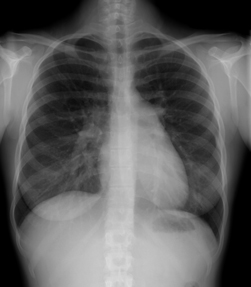Unique aspect of internship involves learning to meet needs
An intern learns to balance patient needs with his own, following the guidance of senior residents and mentors.
My pager fired off a salvo of shrill beeps. Before I could reach down to silence the alarm, it went off again. It screeched yet again as I clicked through the messages. Behind me, my resident put a knowing hand on my shoulder.
“I'm sorry, man,” he said. “I know how busy things can get. Just remember: Everyone has needs.”

I looked up and nodded. Then I stood quickly to find the nearest phone.
I am three-quarters done with my intern year, and the experience has been amazing. I have been surrounded by a fantastic group of researcher- and clinician-mentors. My peers are some of the brightest, kindest people I have ever met, and my program has been exceedingly supportive. I am repeatedly impressed by the caliber of various clinical services, and my patient interactions have been challenging, educational and almost invariably gratifying. I often go home with a great sense of fulfillment.
Like many of my peers across the country, however, I have also experienced many genuinely difficult days. The learning curve for inpatient internal medicine is steep, for its outpatient counterpart even more so. Work-hour restrictions have changed, but certainly not abolished, the demanding pace and substantial time commitment. There are days when multiple patients acutely worsen, admissions pour in at blistering rates, and I lose myself in a seemingly endless list of tasks. Caring for sick, hurting people is intrinsically demanding.
In the last several months, however, I have realized that the hardest thing about my work has not been the long hours or enormous amount of requisite medical knowledge, though both are formidable. Instead, it has been the element that my resident astutely noted amid my barrage of pages: Everyone has needs.
The most taxing and perhaps unique aspect to internship is that I have the central role in meeting the needs of almost everyone involved in patient care. My patients have myriad objective and subjective needs, whether to maintain appropriate blood pressures, voice their fears, or have their symptoms addressed. Similarly, their families need to meet with physicians, offer their input and receive updates about treatment plans.
I'm also learning my role in addressing the needs of other clinical team members. The degree to which I communicate with nurses and clearly frame orders makes an enormous impact on their workflow. The ability for services like physical therapy, imaging, nutrition and social work to function efficiently also depends on my awareness of their departmental requirements.
The privilege of working with outstanding attending physicians who are also researchers and hospital leaders requires me to shape my schedule around their academic and administrative commitments. Forging positive dynamics with resident and attending physicians who prefer different degrees of control and oversight is a challenge unto itself. For my senior residents to confidently step back, focus on the big picture, and manage our clinical team, I have to accommodate their unique leadership styles and communicate pertinent care issues with them. Similarly, the task of caring for patients while rounding with medical students, and providing appropriate support while allowing them the room to learn, demands finesse.
As almost all housestaff can attest, attempting to meet all of these needs can be challenging. Every request or complaint is important in its own right, but some require more rapid attention than others. Understanding when and which diagnostic studies are indicated and securing timely confirmation for each require both time and experience.
Patients' families who are only available for small windows of time often require extra effort that compromises other clinical work. Busy clinical environments and simultaneous obligations to inpatient and ambulatory patients complicate our efforts, as do the formal lectures, trainings and simulations that define residency.
The effort, however, is as vital as it is challenging. I recently had the privilege of working with a senior resident who modeled the necessary balance consistently, pursuing and achieving a maturity and thoughtfulness far beyond what could be explained by length of training. What he possessed was rare and distinct, a steady, unflappable awareness amid a sea of needs: when a few extra minutes talking with a patient was crucial, when he needed to move quickly and instead defer issues, or when he was at his capacity and needed help. My time with him solidified the idea that as house officers, only parts of our eventual clinical and leadership instincts result from working long hours and amassing clinical knowledge.
Repeated attempts are needed to comprehensively assume responsibility of patient care. Only by leaning into that responsibility intentionally, and repeatedly succeeding and failing to meet it, can we fully refine our strengths and improve our weaknesses. Only then will the wealth of knowledge and experience we gain be optimally applied. Only then will we grow increasingly confident operating in the space between the art and science that define our profession. The process will take time, but as my senior resident exemplified, the goal is attainable. And early, sustained effort is vital.
My pager still frequently fires in relentless bursts throughout the day. But when it does, I am learning to pause for a few moments—to remember the privilege of my work and those who have modeled how to navigate its needs—before standing quickly to find the nearest phone.



